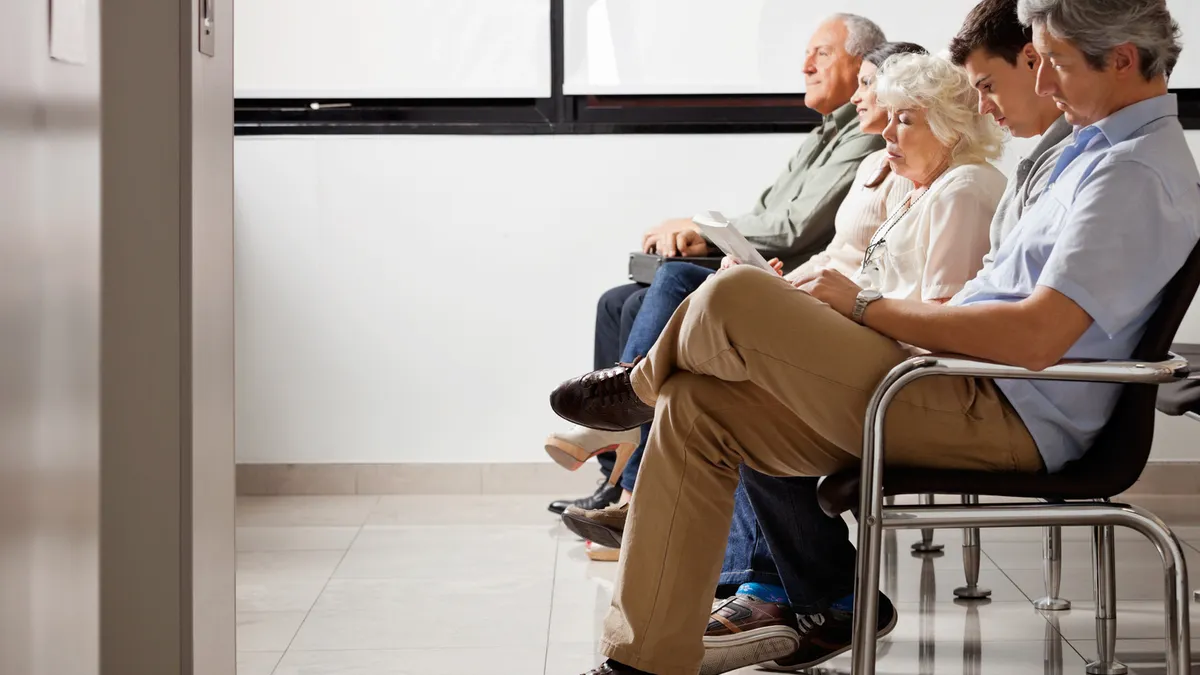Dive Brief:
- More than one in 10 adults ages 16 to 64 said they delayed or went without needed healthcare services due to virus fears in the past 30 days, an April survey from the Urban Institute funded by the Robert Wood Johnson Foundation found.
- One in 10 parents delayed seeking care for their children for that reason, according to the report published Wednesday.
- Hispanic and Black adults, along with adults with lower incomes, reported delaying care at higher rates than other groups. Adults with chronic health problems were also more likely than those without such conditions to say they went without needed care.
Dive Insight:
Last year patients overwhelmingly put medical care on hold. They delayed annual check-ups as doctors' offices temporarily closed and postponed elective surgeries as hospitals canceled procedures to preserve resources for COVID-19 patients.
While those restrictions have since eased, people were still hesitant to seek care out of fear of virus exposure, the report based on April data found. That could partially be due to the fact that vaccination rollouts were still underway this spring, especially among people less than 65 years old, researchers wrote.
Parents with children under 19 years old also said they delayed seeking care for their children over virus worries in the spring. Children under 12 years old still cannot get the shot, though Pfizer’s coronavirus vaccine was cleared for emergency use in those 12 to 15 years old in May.
Patients most often said they delayed visits for dental care, general doctors or specialists, and preventative health screening and medical tests, the survey found. Researchers found a number of demographic differences among patients returning to medical settings too.
While 16% of Hispanic adults and 13.3% of Black adults said they delayed care during the survey’s timeframe, 8.7% of White adults said the same.
Adults with incomes below 250% of the federal poverty level were also more likely than those with higher incomes to delay care, and parents with lower family incomes were more likely to delay care for their children than those with higher incomes.
Adults with several chronic health conditions also reported having unmet health needs at higher rates than other groups. That could reflect their greater health needs and greater concerns about the virus, the report said.
"As vaccination rates increase and more states loosen restrictions on many activities, more people may try to obtain missed care," researchers wrote. "To meet these needs and address care gaps, it will be important for providers and health plan staff to actively identify and reach out to patients, especially those with chronic health conditions, who have missed preventive and chronic care."













